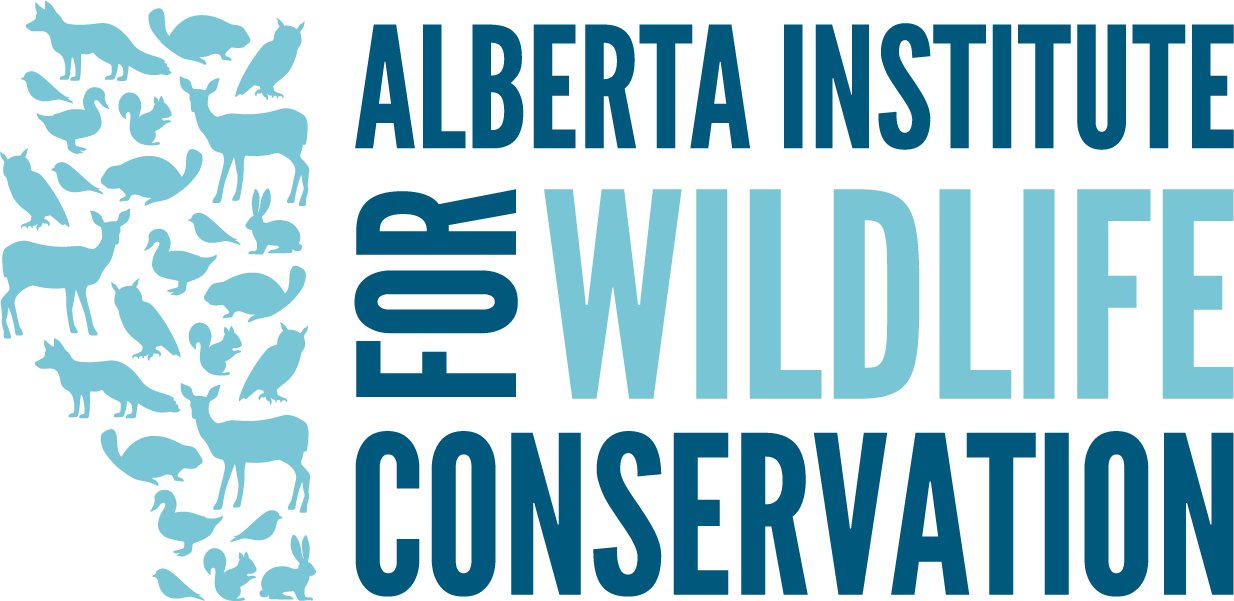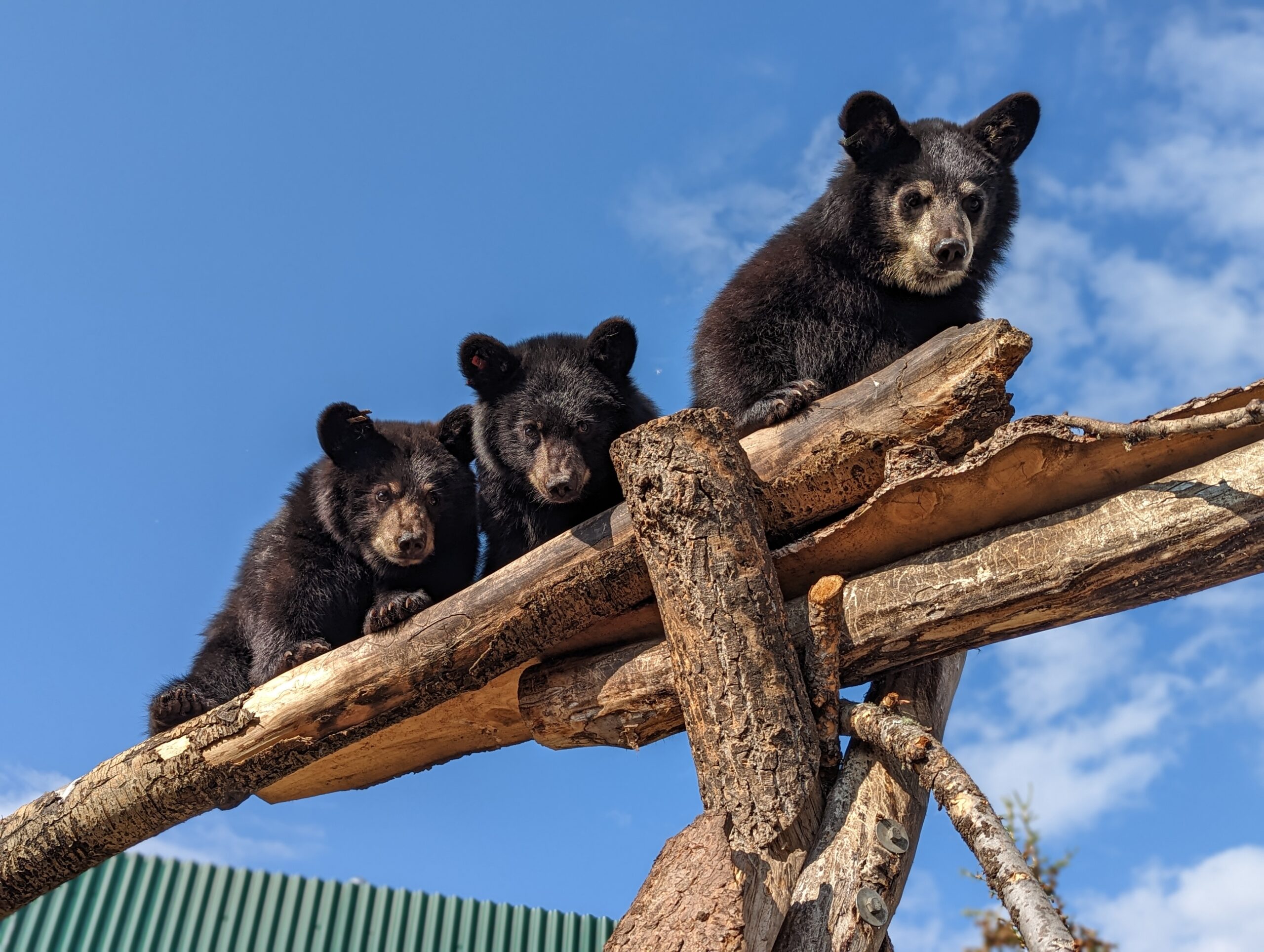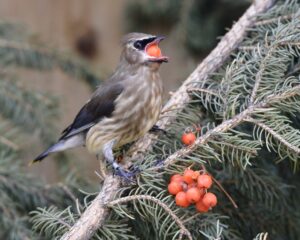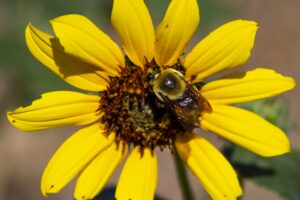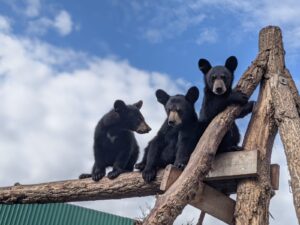By Shalene Hughes
Alberta is home to a wide range of wildlife, including two different kinds of bears: grizzly bears and black bears. These bears have their own distinct characteristics, but both are known to sleep throughout the harsh winters in Alberta.
Grizzly Bears
Grizzly bears are known for the hump between their shoulders, dish-shaped snout, and small, rounded ears. Adult grizzly bears can weigh between 200 and 880 pounds!1 The grizzly bear diet consists of plants, berries, insects, and large mammals.1 The home of a grizzly ranges as they travel long distances.1 Usually, grizzly bears can be found in open areas such as mountains and foothills throughout Alberta. 1
Black Bears
Black bears can be identified by their prominent ears, straight snout, and the lack of hump between their shoulders.1 Adult black bears can weigh anywhere from 100 to 440 pounds.1 A black bear’s diet mainly consists of plants, berries, and insects – additionally, some learn to hunt small ungulates such as fawns and calves.1 Black bears find homes in Alberta’s forested lands as they can climb trees to avoid or escape situations that may be dangerous for them. 1
Hibernation versus Torpor
Hibernation
Hibernation allows certain wildlife to conserve their energy during the harsh Albertan winters when food may not be as accessible. Features of hibernation include a decrease in body temperature and the slowing of breathing, heart rate, and metabolism.3 These rates slow to conserve energy during extended periods of cold temperatures and environments where other necessities are limited. Animals in hibernation will not be roused by a loud noise, movement, or touch. 3
Torpor
Torpor can be thought of as a “light hibernation.” Torpor differs from hibernation as it lasts for shorter periods of time and can be interrupted. 3 Some animals may wake from torpor and move around their den or even leave the den on warmer days.3
Despite popular knowledge, bears are light hibernators! Grizzly bears and black bears in Alberta go into torpor from approximately October to April.2 During the summer and fall prior to torpor, these bears build up a layer of fat to sustain themselves while they sleep. While in torpor, bears generally do not eat, drink, defecate, or urinate.4 The waste produced during their sleep is broken down and recycled into protein that helps to sustain muscle mass and organ tissue.5 The bear’s heart rate will lower but their body temperature will remain higher than animals in true hibernation. Although bears can sleep for most of the winter, they can wake up on a warmer winter day to have a snack or to protect themselves if a threat arises.3
Disturbing Torpor
It is important not to disturb a bear while it is in torpor as they can wake quickly to defend themselves. As previously mentioned, bears’ temperatures do not lower significantly while in torpor and this means that they can respond quickly if they are disturbed and sense danger. Waking a bear in torpor can be a risk to you and can additionally be harmful to the bear. Waking up from torpor uses a significant amount of energy that the bear has been storing.6 The energy that was used to wake up may be so depleted that it could prevent the bear from making it to the end of the torpor period.
Footnotes
- Alberta.ca. “Know Your Bears.” Accessed March 29, 2023. https://www.alberta.ca/know-your-bears.aspx.
- Fresh Tracks Canada. “Bear Hibernation: What Happens When They Go into Their Slumber.” Canadian Train Vacations, March 6, 2023. https://canadiantrainvacations.com/blog/canadian-bear-hibernation-facts.
- Gahbauer, Steve. “How Canadian Wildlife Survives Winter.” Nature Canada, March 4, 2019. https://naturecanada.ca/news/blog/how-canadian-wildlife-survives-winter/#:~:text=Animals%20in%20brumation%20typically%20wake,up%20during%20warmer%20winter%20days.
- “How Do Bears Hibernate?” Nature Alberta. Accessed March 29, 2023. https://naturealberta.ca/how-do-bears-hibernate/.
- Biel, Mark, and Kerry Gunther. “Denning and Hibernation Behavior.” National Parks Service. U.S. Department of the Interior, September 18, 2019. https://www.nps.gov/yell/learn/nature/denning.htm.
- “What Happens If You Wake a Bear from Hibernation?” Wonderopolis. Accessed March 29, 2023. https://wonderopolis.org/wonder/What-Happens-if-You-Wake-a-Bear-From-Hibernation.
